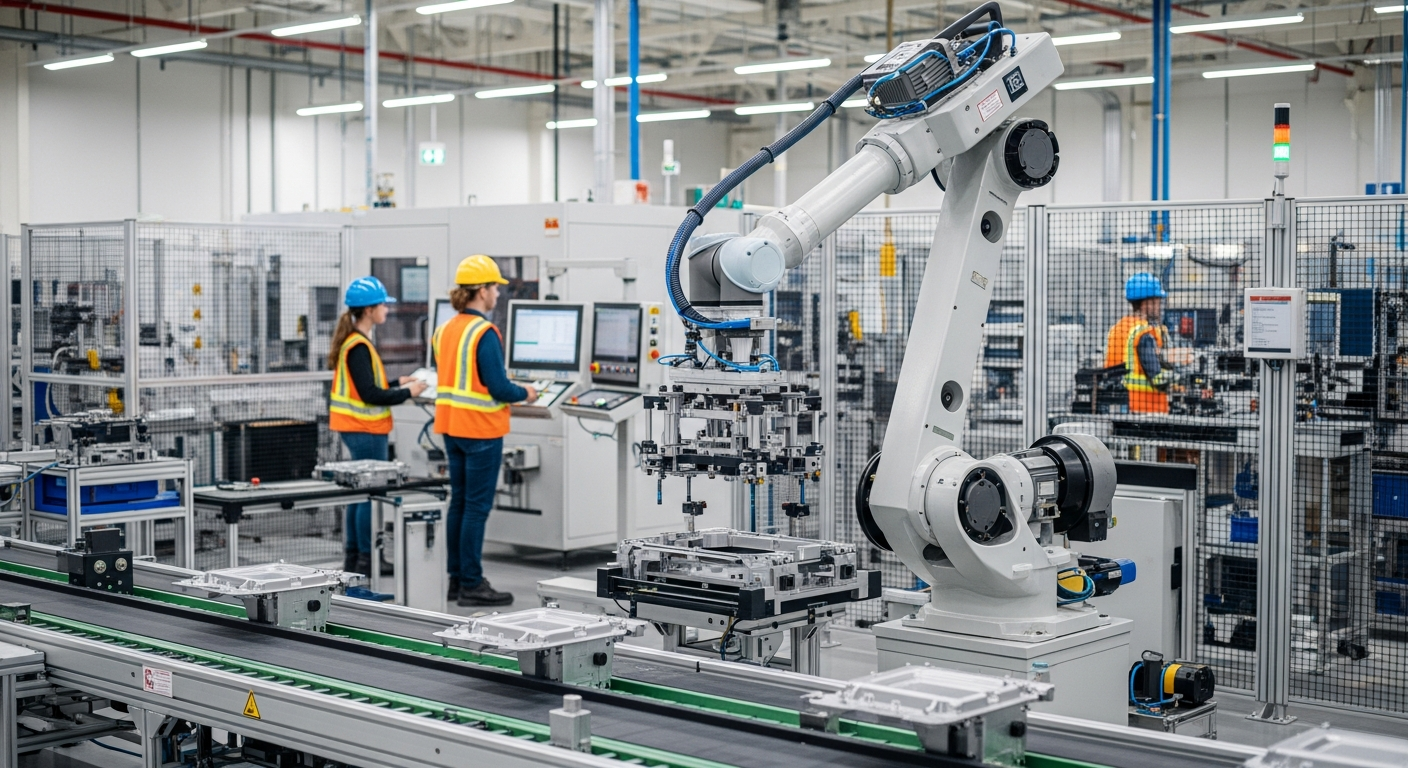Decentralized Autonomous Organizations in Manufacturing
The intersection of blockchain technology and industrial operations has given rise to a groundbreaking concept: Decentralized Autonomous Organizations (DAOs) in manufacturing. This innovative approach reimagines traditional hierarchical structures, offering a new paradigm for decision-making, resource allocation, and operational efficiency in the industrial sector.

The Genesis of DAOs in Manufacturing
The concept of DAOs emerged from the cryptocurrency and blockchain space, but its application in manufacturing represents a significant leap forward. Traditional manufacturing models often struggle with bureaucratic bottlenecks, slow decision-making processes, and limited stakeholder involvement. DAOs address these challenges by creating a decentralized framework where decisions are made collectively, and operations are governed by smart contracts.
The implementation of DAOs in manufacturing began as experimental projects in smaller, tech-savvy companies. These early adopters recognized the potential for increased efficiency, reduced overhead costs, and improved supply chain management. As success stories emerged, larger manufacturers started exploring DAO integration, particularly in areas such as product development, quality control, and resource allocation.
Core Principles of Manufacturing DAOs
Manufacturing DAOs operate on several key principles that distinguish them from traditional organizational structures. Firstly, they embrace decentralization, distributing decision-making power across a network of stakeholders rather than concentrating it in a central authority. This approach ensures that diverse perspectives are considered and reduces the risk of single-point failures.
Secondly, transparency is paramount in manufacturing DAOs. All transactions, decisions, and operational data are recorded on a blockchain, creating an immutable and accessible ledger. This level of transparency fosters trust among stakeholders and enables real-time monitoring of manufacturing processes.
Lastly, manufacturing DAOs leverage smart contracts to automate various aspects of operations. These self-executing contracts can manage supply chain logistics, trigger maintenance schedules, and even adjust production parameters based on predetermined conditions, significantly enhancing operational efficiency.
Implementing DAOs in Industrial Settings
The integration of DAOs into existing manufacturing infrastructures requires careful planning and execution. The first step typically involves identifying areas within the manufacturing process that could benefit from decentralized governance. Common starting points include supply chain management, quality assurance, and innovation pipelines.
Once target areas are identified, the next phase involves developing the DAO’s governance structure. This includes defining voting mechanisms, establishing decision-making protocols, and creating incentive systems to encourage participation. Many manufacturing DAOs utilize token systems, where stakeholders earn tokens for their contributions, which can then be used to influence decisions or access resources.
The technical implementation of a manufacturing DAO relies heavily on blockchain technology. Ethereum has emerged as a popular platform for building DAOs due to its robust smart contract capabilities. However, other blockchain solutions tailored for industrial applications are also gaining traction.
Benefits and Challenges of Manufacturing DAOs
The adoption of DAOs in manufacturing offers numerous benefits. By distributing decision-making power, DAOs can lead to more agile and responsive operations. They also foster a sense of ownership among stakeholders, potentially increasing engagement and innovation. The transparency inherent in blockchain-based systems can improve traceability and accountability throughout the manufacturing process.
However, manufacturing DAOs also face significant challenges. The legal status of DAOs remains uncertain in many jurisdictions, posing regulatory risks. Additionally, the technology’s complexity can be a barrier to adoption, particularly in industries with established, traditional practices. There are also concerns about the scalability of blockchain networks and their ability to handle the high transaction volumes typical in manufacturing environments.
Future Prospects and Industry Impact
As the concept of manufacturing DAOs matures, its potential to reshape industrial practices becomes increasingly apparent. We’re likely to see the emergence of hybrid models that combine elements of traditional organizational structures with DAO principles, allowing for a gradual transition in established industries.
The impact of DAOs could extend beyond individual manufacturers to entire industrial ecosystems. Imagine a network of manufacturing DAOs collaborating on large-scale projects, sharing resources, and collectively responding to market demands. This level of inter-organizational cooperation could lead to unprecedented efficiencies and innovation in the manufacturing sector.
Practical Insights for Implementing DAOs in Manufacturing
• Start small: Begin with a pilot project in a non-critical area of operations to test the DAO concept.
• Educate stakeholders: Provide comprehensive training on blockchain technology and DAO principles to ensure buy-in and effective participation.
• Design flexible governance: Create a governance structure that can evolve as the organization learns and grows.
• Prioritize security: Implement robust cybersecurity measures to protect the DAO from potential attacks or vulnerabilities.
• Foster a culture of participation: Encourage active involvement from all stakeholders to maximize the benefits of decentralized decision-making.
The advent of Decentralized Autonomous Organizations in manufacturing marks a significant shift in how industrial operations are managed and governed. By leveraging blockchain technology and decentralized governance models, manufacturing DAOs offer a promising path towards more efficient, transparent, and collaborative industrial practices. As the technology matures and regulatory frameworks evolve, we can expect to see wider adoption of DAOs across various manufacturing sectors, potentially ushering in a new era of industrial innovation and operational excellence.






